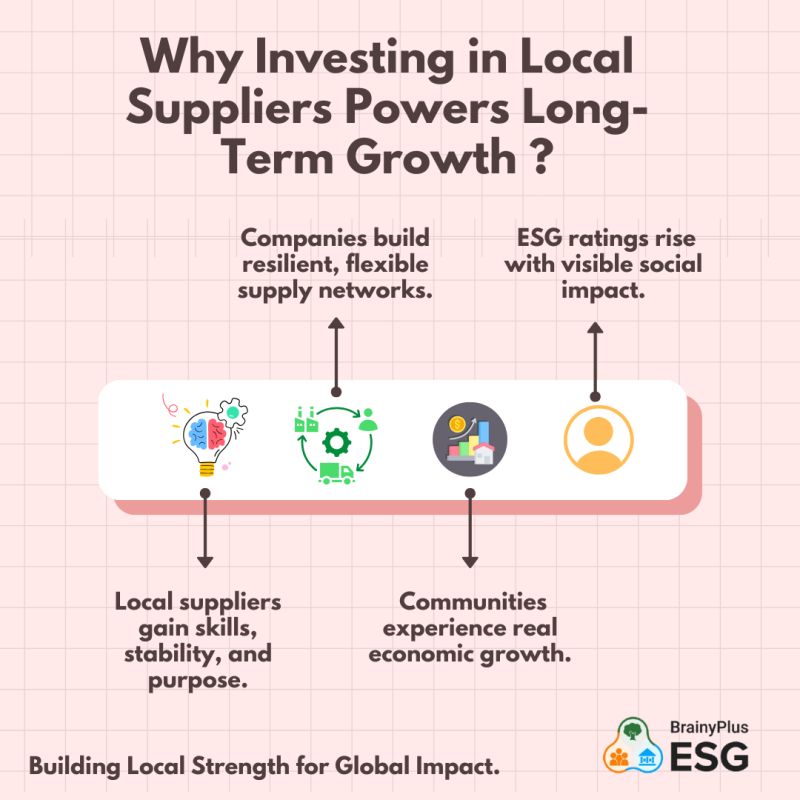
In today’s evolving business world, corporates are realizing that growth is not just about profits-it’s about partnership. Engaging local suppliers is emerging as one of the most impactful ways to create shared value across business, community, and environment.
When companies actively involve local suppliers in their value chain, they ignite a cycle of empowerment and mutual benefit:
Skill Development & Capacity Building:
By training local suppliers on quality standards, safety, and compliance, companies strengthen their own supply chain reliability while uplifting local talent. This ensures better product consistency and improved social impact scores under ESG frameworks.
Creating Component Suppliers:
Supporting smaller enterprises to become specialized component suppliers develops a flexible, cost-effective, and resilient manufacturing ecosystem-reducing import dependencies and logistical risks.
Financing & Supporting Entrepreneurs:
Providing small entrepreneurs access to low-cost working capital, technical mentoring, and consistent order flow creates long-term loyalty, innovation, and stability across the local supply network.
Community Relationships & Brand Value:
When people see a company investing in their community, trust and goodwill rise. Local supplier engagement builds powerful emotional equity-transforming customers into advocates and employees into brand ambassadors.
Support from Government & NGOs:
Governments increasingly incentivize local sourcing through tax benefits, grants, and recognition programs. NGOs and sustainability platforms also partner to enhance inclusive growth and traceable value chains.
Boosting Local Economy & Ancillary Ecosystem:
Every local sourcing initiative triggers a multiplier effect-creating employment, boosting local demand, and encouraging micro-industries. This builds long-term regional resilience and prosperity.
Stronger ESG Ratings & Access to Sustainable Finance:
Engaging local suppliers strengthens ESG scores, boosts investor confidence, and opens access to green finance.
Steps to Implement a Local Supplier Development Strategy
Map critical procurement categories and identify local potential.
Create supplier qualification and mentoring frameworks.
Develop financing or credit support models in partnership with local banks.
Establish long-term performance-linked contracts.
Collaborate with local chambers, NGOs, and government programs.
Measure and report impact-not just cost savings, but community and environmental benefits.
BrainyPlus helps companies build resilient supply chains and stronger social impact through ESG-aligned local supplier strategies.
#BrainyPlus #Sustainability #ESG #LocalSuppliers #CorporateResponsibility #InclusiveGrowth #CommunityDevelopment #GreenFinance






